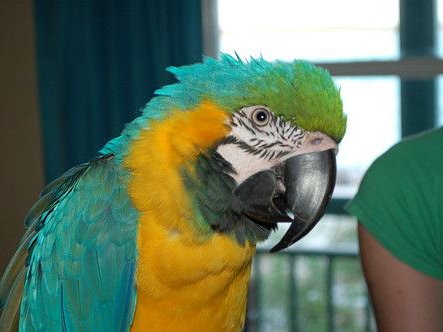If you live with a parrot, you already know: these colorful companions can be loud. While some level of vocalization is normal and healthy, excessive or constant parrot screaming can be frustrating and difficult to manage. The good news? Parrots rarely scream without a reason. Understanding the underlying causes of their vocal behavior is key to building a better relationship with your bird.
In this article, we’ll explore why parrots scream, how to tell the difference between normal and problematic behavior, and what you can do to help.
Why Do Parrots Scream?
Parrots are naturally vocal creatures. In the wild, they use loud calls to communicate with their flock, signal danger, or express excitement. In a domestic setting, your parrot might see you as part of its flock and use sound as its main communication tool.
Here are some of the most common reasons your parrot might scream:

1. Attention-Seeking Behavior
Parrots are highly intelligent and social animals. If they feel lonely or ignored, they may scream to get your attention. Unfortunately, if you respond by rushing over or talking to them, it can reinforce the behavior — even negative attention is still attention.
Tip: Provide consistent interaction and mental stimulation throughout the day. Ignore the scream and reward quiet, calm behavior instead.
2. Boredom and Lack of Enrichment
Parrots need a stimulating environment to stay mentally healthy. A bird left alone in a cage without toys, interaction, or variety can quickly become bored — and noisy.
Solution: Offer foraging toys, rotate perches, introduce puzzle feeders, and spend quality time training or talking with your parrot each day.
3. Fear or Stress
Screaming can also be a reaction to fear, anxiety, or stress. Common triggers include loud noises, changes in routine, unfamiliar people, or other pets. Even a new object in the room can unsettle a parrot.
Tip: Observe your bird’s environment and eliminate stressors when possible. Gradual desensitization can help your parrot adjust to new things.
4. Hunger or Discomfort
Parrots may vocalize if they’re hungry, thirsty, too hot, too cold, or in pain. If the screaming is sudden or paired with other behavior changes, it could indicate a health issue.
Tip: Always check your bird’s basic needs first. If in doubt, consult an avian veterinarian.
5. Hormonal Behavior
During breeding season, hormonal changes can lead to increased vocalization, territorial behavior, and mood swings. This is especially common in sexually mature birds.
Management: Limit light exposure to mimic natural daylight cycles, avoid petting under wings or near the tail, and redirect their energy through training and enrichment.
What Not to Do
-
Do not yell back. It reinforces the noise.
-
Avoid punishing the bird — it may increase fear or aggression.
-
Don’t cover the cage to force silence — this can lead to stress and long-term behavioral problems.
When Is Screaming Normal?
Some vocalizing is completely normal — morning and evening “flock calls,” expressions of joy, or calls for check-ins. Learn your bird’s vocal patterns so you can distinguish between healthy communication and signs of distress.
Final Thoughts
Understanding why your parrot screams is the first step to creating a peaceful, positive relationship. Screaming is a form of communication — not misbehavior. By addressing the root cause, offering enrichment, and setting clear, consistent expectations, you can reduce excessive noise and build trust with your feathered friend.
Learn More
For more resources on parrot behavior and training, visit the zoopiahub.com or consult with a certified avian behaviorist.

